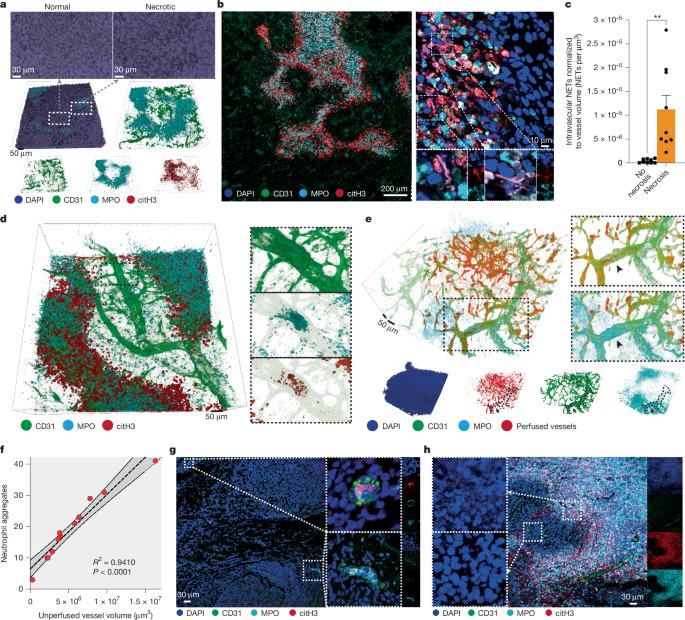
""We evaluated magnetic resonance imaging (MRI) images of 200 patients with breast cancer for necrosis. Patients with necrotic tumours had shorter recurrence-free and overall survival.""
""Neutrophils can promote metastasis, including by releasing NETs. NETs can promote most steps of metastasis and when formed intravascularly, are cytotoxic to the vasculature.""
Tumour necrosis serves as a significant prognostic indicator in cancer, yet its underlying mechanisms are not well understood. Historically, necrosis was seen as a passive result of insufficient nutrients due to rapid cell growth. However, recent findings indicate that it is directly influenced by alterations in haematopoiesis that enhance neutrophil production. Neutrophils promote metastasis through neutrophil extracellular traps (NETs), which hinder vascular perfusion and contribute to necrosis. A correlation exists between primary tumour necrosis and poorer patient outcomes, evidenced by MRI evaluations linking necrotic tumours to decreased survival rates and increased lymph node involvement.
Read at Nature
Unable to calculate read time
Collection
[
|
...
]